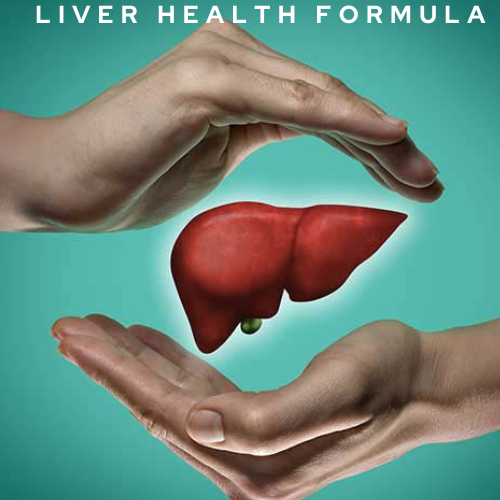Introduction
Hepatitis refers to inflammation of the liver, commonly caused by viral infections. There are several types of hepatitis viruses, each with different modes of transmission, symptoms, and treatments. This article provides an overview of hepatitis types, symptoms, prevention strategies, and treatment options.
What is Hepatitis?
Hepatitis is an inflammatory condition of the liver, which can be acute or chronic. It is commonly caused by viral infections but can also result from autoimmune diseases, medications, toxins, and alcohol abuse.
Types of Hepatitis
Hepatitis A
Hepatitis A is a highly contagious liver infection caused by the hepatitis A virus (HAV). It is typically spread through ingestion of contaminated food or water. Symptoms of hepatitis A may include fatigue, nausea, abdominal pain, and jaundice. Hepatitis A infection can be prevented with a vaccine and by practicing good hygiene, such as handwashing and safe food handling practices.
Hepatitis B
Hepatitis B is caused by the hepatitis B virus (HBV) and is transmitted through contact with infectious blood, semen, and other body fluids. It can also be transmitted from mother to child during childbirth. Hepatitis B can range from a mild illness lasting a few weeks to a serious, lifelong condition. Vaccination is available to prevent hepatitis B infection, and antiviral medications can help manage chronic hepatitis B.
Hepatitis C
Hepatitis C is caused by the hepatitis C virus (HCV) and is primarily spread through contact with infected blood. It can be transmitted through sharing needles, needlestick injuries in healthcare settings, and, less commonly, through sexual contact. Hepatitis C can lead to chronic liver disease and is a major cause of liver cirrhosis and liver cancer. Antiviral medications are available to cure hepatitis C in many cases.
Hepatitis D
Hepatitis D, also known as delta hepatitis, is a liver infection caused by the hepatitis D virus (HDV). It only occurs in individuals who are already infected with hepatitis B. Hepatitis D is transmitted through contact with infected blood or bodily fluids and can lead to a more severe form of hepatitis than hepatitis B alone. Prevention involves hepatitis B vaccination, as there is no specific vaccine for hepatitis D.
Hepatitis E
Hepatitis E is a liver infection caused by the hepatitis E virus (HEV). It is typically spread through ingestion of contaminated water. Hepatitis E is most common in areas with poor sanitation and can cause acute illness similar to hepatitis A. There is no specific treatment for hepatitis E, but it usually resolves on its own. Prevention involves improving sanitation and ensuring safe drinking water sources.
Symptoms of Hepatitis
Symptoms of hepatitis may include:
- Jaundice (yellowing of the skin and eyes)
- Fatigue
- Abdominal pain
- Nausea and vomiting
- Dark urine
- Clay-colored stools
- Joint pain
Symptoms can vary depending on the type of hepatitis and whether the infection is acute or chronic.
Prevention of Hepatitis
Vaccination
Vaccination is available for hepatitis A and hepatitis B and is recommended for individuals at risk of infection, including travelers to endemic areas, healthcare workers, and individuals with certain medical conditions.
Practice Good Hygiene
Practicing good hygiene, such as washing hands thoroughly with soap and water, especially after using the bathroom and before handling food, can help prevent the spread of hepatitis A and E.
Safe Sex Practices
Using condoms and practicing safe sex can reduce the risk of hepatitis B and hepatitis C transmission.
Avoiding Sharing Needles
Avoiding sharing needles and other drug paraphernalia can prevent hepatitis B and hepatitis C infections.
Safe Handling of Blood and Bodily Fluids
Healthcare workers should follow standard precautions for handling blood and bodily fluids to prevent hepatitis B and hepatitis C transmission.
Treatment Options
Treatment for hepatitis varies depending on the type and severity of the infection. It may include:
- Antiviral Medications: Used to treat chronic hepatitis B and hepatitis C infections.
- Supportive Care: Includes rest, adequate nutrition, and avoiding alcohol and certain medications that can worsen liver damage.
- Liver Transplant: In cases of severe liver damage or liver failure due to chronic hepatitis.
Expert Insights
Medical experts emphasize the importance of early diagnosis, vaccination, and adopting preventive measures to reduce the burden of hepatitis globally. Regular screening and monitoring are essential for individuals at risk of chronic hepatitis.
Frequently Asked Questions
- Can hepatitis be cured? Hepatitis A and E infections usually resolve on their own. Hepatitis B and C can be cured in some cases with antiviral medications.
- How long does hepatitis A last? Hepatitis A typically resolves within a few weeks to months, with supportive care.
- Is there a vaccine for hepatitis C? Currently, there is no vaccine available for hepatitis C.
Conclusion
In conclusion, hepatitis is a group of liver infections caused by various viruses, each with distinct transmission routes, symptoms, and treatment options. Vaccination, good hygiene practices, safe sex, and avoiding sharing needles are crucial for preventing hepatitis infections. Early diagnosis and appropriate medical care can help manage hepatitis and prevent complications.



